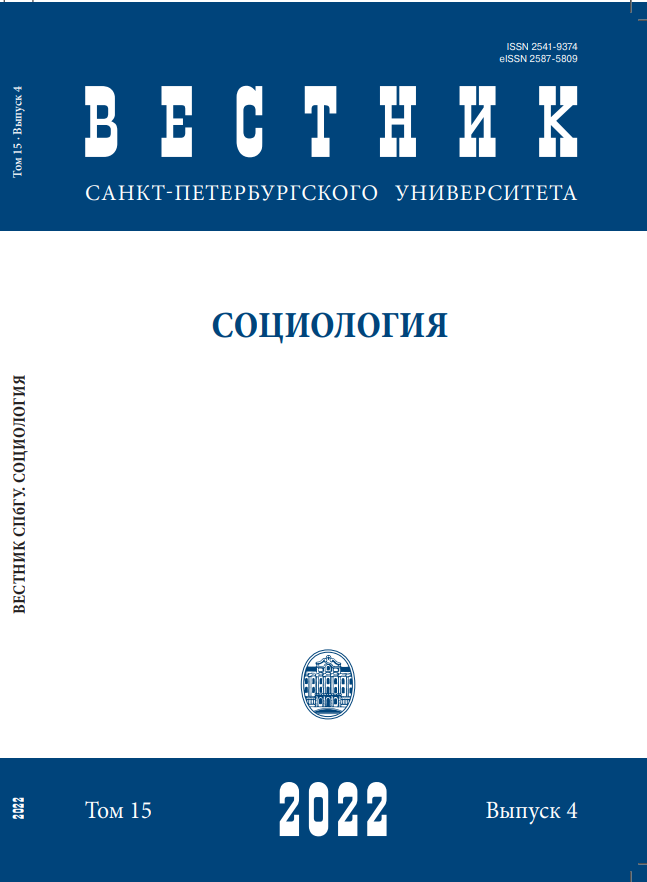Social innovation in Russian cities: Assessing service management potential
DOI:
https://doi.org/10.21638/spbu12.2022.407Abstract
The article presents a method for assessing the potential of social innovations in the cities of the Russian Federation based on the use of quality of life indicators provided by VEB.RF. The social innovative potential is the presence of a set of socio-economic development conditions that positively influence the creation, dissemination and use of innovations, both technical and managerial, in the provision of social services. In the course of the study a hierarchical clustering of the cities according to the obtained comprehensive assessment using Ward’s method was carried out. It was established that the cluster with high potential for emergence and development of social innovations includes only two cities out of studied 51 ones, the largest number of cities are included in the cluster with low level of potential. A high level of potential has been identified in small single-industry towns, with a homogenised population engaged in high-tech industry, with a high level of self-organisation and civic engagement. The population of cities with the lowest levels of potential is characterised by high levels of fragmentation, which is not compensated by higher levels of income. The key factors determining the potential are the activity of interaction within communities and the presence of organisations that carry out their activities in the social services sector. Thus, it can be assumed that increasing the potential for social innovation in Russian cities depends on the communication competences of local authorities and the establishment of a functioning system of social entrepreneurship, which brings to the fore the problem of integrating modern effective management methods into the social services sector.
Keywords:
social innovation, services sector, management, innovative potential, local government
Downloads
References
Downloads
Published
How to Cite
Issue
Section
License
Articles of "Vestnik of Saint Petersburg University. Sociology" are open access distributed under the terms of the License Agreement with Saint Petersburg State University, which permits to the authors unrestricted distribution and self-archiving free of charge.




